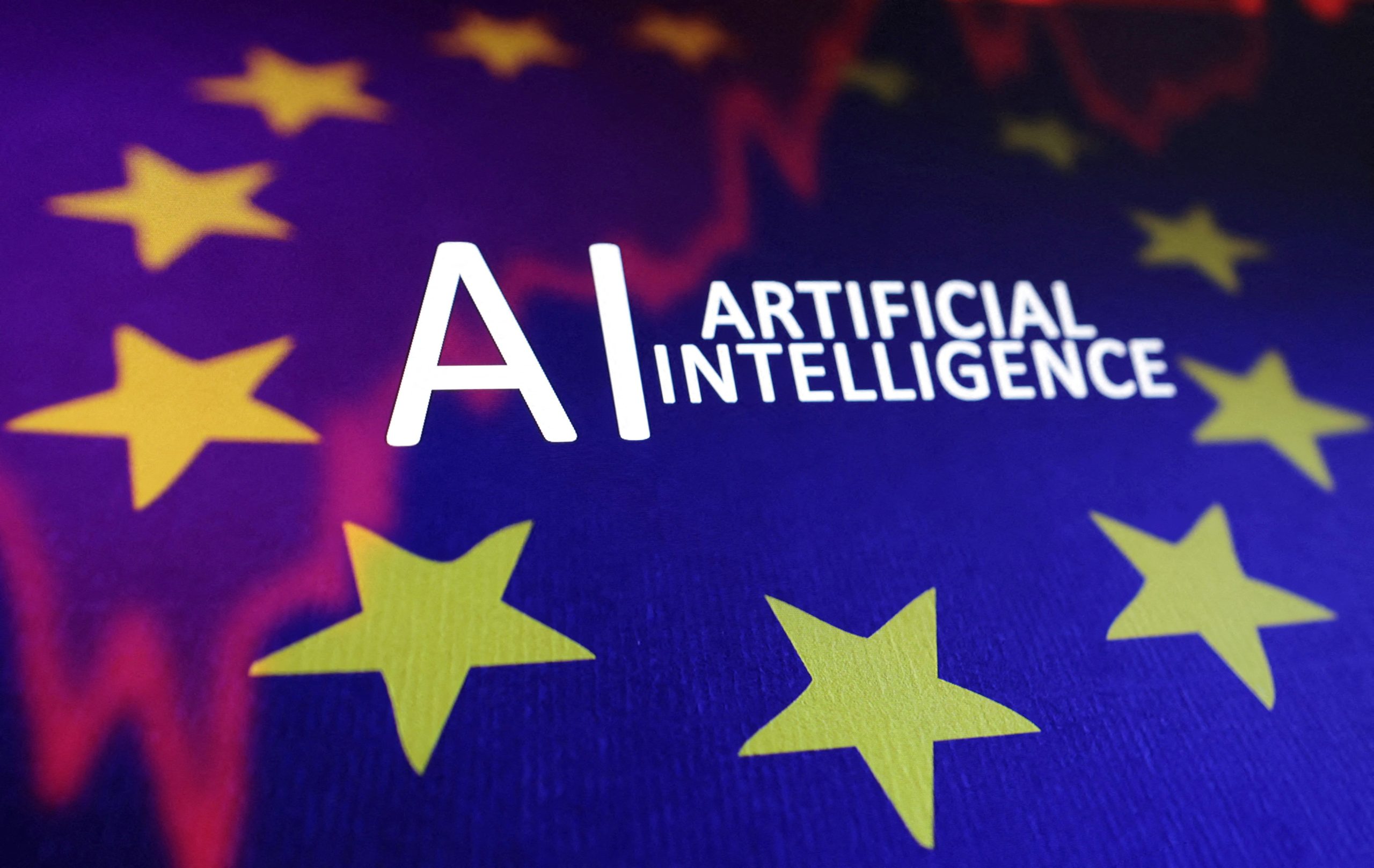Mr. Pitas, in which areas is AI technology primarily used in Greece today?
Currently, two types of AI tool are most used. Firstly, large language models like ChatGPT, which are utilized by the general public for information retrieval and writing various tasks. And secondly, generative AI, which is used, for example, to create images and videos. These images can be artistic works or fabricated content created for the purpose of misinformation.
Both tools are more relevant to the general public than they are to companies and businesses. So what are the most significant achievements in the corporate sphere?
Companies are striving to develop specific applications: for example, smart agents that can identify users’ tourism preferences, then provide tailored information. These applications could and should be more organized than existing models like ChatGPT, but while such capabilities do exist, they have not yet been implemented satisfactorily. At present, I cannot think of any significant AI application that has been tailored for, and/or developed in, Greece.
Greece has made progress in the technology field in recent years. However, the use of AI technologies by Greek businesses is below the EU average. What are the prerequisites for the sort of successful AI development that will allow the country to emerge as the “technology hub” the Greek government would like it to become?
First, it is essential to identify areas where Greece has a comparative advantage, then develop this advantage appropriately. Greece has a strong scientific workforce, for example, which could be utilized effectively through AI investments that make Greece competitive. Attracting scientists and researchers from abroad could also bolster this effort. However, the present institutional framework does not favor the development of such initiatives, while the goals and available resources and funding have proved insufficient to date. But we cannot afford to wait much longer before developing AI in Greece; we’re already lagging behind.
What challenges do Greek businesses face in developing AI technologies?
In traditionally strong sectors of the Greek economy, such as tourism and financial services, integrating AI could offer significant benefits. To achieve this goal, Greek IT companies need to reduce their dependence on state projects and focus on creating innovative products aimed at the international market. The lack of a culture of innovation poses a significant challenge, although some progress has been made in recent years.
The European Union plans to promote the development of AI technologies through specialized factories, one of which–named ‘Pharos’–is due to be built in Greece within the next three years. Institutes and universities including the Aristotle University of Thessaloniki are to participate in the project’s research activities. What are the potential impacts and benefits of this initiative for the technological advancement of Greece and Europe?
It is positive that efforts are being made within the European Union to develop the technological foundations of Al, and that Greece is to host such a center. However, these centers require significant capital investment and energy, and Greece does not have the substantial financial resources to focus its development on this sector. The creation of new jobs will be limited. The key question concerns how the computational power acquired will be utilized. What applications will be developed, and what will be their practical utility? There is talk about creating models for the Greek language, but the ultimate scientific and economic purpose and methodology remain unclear. Why not leverage existing language models like those from OpenAI? There does not seem to be a specific plan in place for utilizing this investment to create innovative products and services and, ultimately, societal wealth. Cheap computational power may be acquired for a limited time, but it remains uncertain how this will be exploited in a way that provides substantial benefits to Greece.
Beyond linguistic research, one goal is to promote health through ‘Pharos’.
Health is an area in which Greece could have significant competitive advantages, given its high level of medical and scientific expertise. Still, specific measures and actions are needed if AI products and services are to be designed which lead to improved healthcare services.
So you don’t believe the ‘Pharos’ project will yield any substantial benefits?
I did not say there would be no substantial benefits. What I did say is that I have not seen any specific plan for producing new knowledge, services, and AI products. Nor has there been serious consultation with research institutions and AI companies in this direction. These centers depreciate rapidly. Their benefits must be realized within three years; after that, they become obsolete. Nevertheless, creating ‘Pharos’ will be a notable achievement for the government, if it is utilized properly. We have many talented minds both in Greece and abroad. Remarkably, 11 percent of the world’s top computer science researchers are Greek; we must leverage this talent and explore ways to attract scientists from abroad, potentially using tools like ‘Pharos’ to do so/ Most importantly, we need knowledge-intensive tools rather than capital-intensive ones.
Can Europe and the world benefit from technological development in Greece and perhaps learn from it? If so, in what specific ways?
Certainly, this could be achieved if we set clear goals and take specific steps in the right direction. We need to produce and provide an internationally recognizable product or service—something we can feel proud of ourselves, but is appreciated by external entities as well as the average Greek citizen. In this way, other countries—Germany, for example–could benefit as well. If we develop a strong industry producing drones, or autonomous boats or ground vehicles, these vehicles could be used in both primary and secondary economic sectors as well as defense applications, with a view to achieving cost-effective solutions. A similar example has already been provided by neighboring Turkey, which invested in developing a military drone industry at relatively low cost, and has demonstrated remarkable progress.
What does your laboratory have to offer in terms or technology development specifically?
We can develop excellent technology in autonomous systems, with a focus on drones for addressing natural disasters. In this regard, we have advanced solutions for both fire detection and flood assessment. This is relatively affordable technology, with a wide range of applications.
The United States currently leads the world in AI development, with China making rapid progress and recently attracting global attention with a more economical AI model. Why is Europe lagging behind in AI development?
Our enterprises, whether large or smaller and in Germany and France as well as other European countries, are not as innovation-oriented as their American counterparts. The Chinese have shown themselves to be more aggressive, however; they have learned from the Americans and may soon surpass them. As Europeans, we must follow their example.
The European Union plans to invest €200 billion in AI development, while the US predicts an investment of $500 billion.
Achieving goals does not depend solely on financial resources. There are cases in which smart strategies allow for the development of sectors that require smaller investments. A notable example is DeepSeek [a low-cost Chinese AI model], which has proven that adopting inexpensive AI technologies can have significant benefits.
What exactly should European countries do to become competitive in AI?
Europe generally lacks a culture of utilizing research results and fostering innovation. Our relatively unproductive technological policy continues to focus more on political correctness–on personal data protection, for example–without leveraging the wealth of data and capabilities available to Europe, given its market size. Thus, while we possess valuable data–from our healthcare systems, for instance–that could create a thriving market for AI products and services for health, we remain stagnant. Instead of overseeing and boosting development, we allow other countries like the US to exploit our data for their own progress—as they do through OpenAI, for instance. It’s imperative that we change that mindset.
The new European law on AI stipulates that applications must be safe and reliable.
Safety is a fundamental requirement. Applications must be safe and reliable, because we cannot progress if they are not. Current US policy is moving in another direction—embracing, for example, the non-regulation of AI—which can be dangerous. We have already seen that in the case of social media platforms, which, not being regulated promptly, have had a catastrophic impact, especially for young people and vulnerable groups. What happened with social media risks being repeated with AI.
Could this excessive caution be holding us back? What’s your view on regulation? Does it hinder or promote innovation?
I am pleased that the European Union has made efforts to establish regulatory frameworks such as the AI Act. However, this regulation is based on the concept of risk, which is subjective. For instance, when recommendation systems are used for evaluating job candidates for a position, it implies high risk. Conversely, when recommendation systems are used for finding partners through apps, it is not considered high-risk. This could lead to legal challenges against the subjective definition of risk. If the European Commission loses even one such case, the AI Act will collapse. It is essential that legislation is based on stable and provable principles.
How realistic is the Commission’s goal of Europe becoming the “AI continent”?
Currently, we rank third behind the US and China. If we hope to advance to first place, the easiest way would be for the leading countries to weaken. As a scenario, this is not entirely out of the question. AI services can be affected by economic or technological crashes, which can reset the balance quickly and drastically. But we shouldn’t rely on this possibility; it’s better to aim for leadership by making strategic changes to the EU’s research and development policies. Even second place would be a significant achievement. Fundamental issues like GDPR [general data protection regulation] and the AI Act were designed with good intentions, but they require adjustments if they are to benefit, rather than hinder, Europe’s scientific and economic growth.
To date, AI has primarily been utilized in fields like informatics, media, telecommunications, and scientific research. What do you foresee as future possibilities for AI? In which sectors do you anticipate significant societal changes?
AI does not affect manual labor as much as mental or intellectual labor, threatening professions like computer animation or text translation. If smart robots are developed, then labor will be impacted on a broader scale. In healthcare specifically, AI could assist by offering diagnostic advisory services to doctors; improvements in diagnosis are expected within two years, while progress towards using AI for treatment planning or surgery will be slower, due to lower technological readiness and high costs overall.
*Ioannis Pitas is a professor in the Department of Informatics at the Aristotle University of Thessaloniki and Director of the Artificial Intelligence Laboratory (AIIA). He is also the president of the International Doctoral Academy of Artificial Intelligence (AIDA), which promotes education in artificial intelligence (AI). He leads various European programs and ranked first in Greece in the field of informatics in 2022 according to the platform Research.com.







